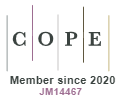Proposal of a conceptual framework based on the triple helix of innovation for smart cities: a study in southern Brazil
DOI:
https://doi.org/10.5585/2023.22796Keywords:
Smart city, Triple helix, Innovation, Generic qualitative, ICTsAbstract
Objective: To present a framework with the elements to guide a smart city from the Triple Helix of innovation.
Methodology: this is a generic qualitative study, applying a semi-structured questionnaire with 12 interviewees in four project initiatives that use ICTs in Porto Alegre and Caxias do Sul RS.
Originality/Relevance: the article discusses the important interaction of project initiatives that apply information and communication technology within cities and how the interaction of these projects with the Triple Helix of innovation “University – Company – Government” impact the citizen and the urban environment.
Results: The government of a city lacks to indicate visions for the city and to solve real problems, as well as to develop public politics to encompass these visions. Companies producing services and technologies for a smart city emphasize the capitalization of knowledge for a smart economy, high-tech industry, and a supportive business and enterprise environment. Universities have contributed to smart city projects through their knowledge of making cities clean and green through skilled human resources.
Social / Management Contributions: In the model proposed in this research, it becomes the central element of the concept of smart cities and the Triple Helix of innovation because, according to the combination of smart governance and smart people, these two assumptions develop, apply knowledge through from universities and companies and receive resources and can feed back the innovation ecosystem, contributing to the social, economic and sustainable well-being of the whole community.
Downloads
References
Agência Brasileira de Desenvolvimento Industrial – ABDI. (2018). Cidades Inteligentes Oportunidades e Desafios para o Estímulo ao Setor no Brasil. Disponível em: http://inteligencia.abdi.com.br/wp-content/uploads/2017/08/2018-09-11_ABDI_relatorio_5_cidades-inteligentes-oportunidades-e-desafios-para-o-estimulo- ao-setor-no-brasil_WEB.pdf. Acesso em: 01, nov. 2021.
Axelsson, K., & Granath, M. (2018). Stakeholders' stake and relation to smartness in smart city development: Insights from a Swedish city planning project. Government Information Quarterly, 35(4), 693-702. https://doi.org/10.1016/j.giq.2018.09.001.
Bardin, L. (2016). Análise de conteúdo. São Paulo: Edições 70.
Beck, D. F., & de Melo Conti, D. (2021). The Role of Urban Innovativeness, Smart Governance, and Smart Development in the Urban Smartness. Humanidades & Inovação, 8(49), 141-151.
Beck, D., & Ferasso, M. (2023). Bridging ‘Stakeholder Value Creation and Urban Sustainability’: The need for better integrating the Environmental Dimension. Sustainable Cities and Society, 89, 104316. https://doi.org/10.1016/j.scs.2022.104316.
Boiani, E. D. S. (2021). Formalização da aplicação da metodologia WCHIS no 9º Workshop de Cidades mais Humanas, Inteligentes e Sustentáveis: estudo de caso na Fazenda Experimental da Ressacada da UFSC-Florianópolis/SC.
Camboim, G. F (2018). The Way To Make Cities Smarter: Evidences From Europe. Dissertação (Mestrado) - Universidade Federal do Rio Grande do Sul, Programa de Pós-Graduação em Administração. Porto Alegre, 2018. Disponível em: https://lume.ufrgs.br/handle/10183/179649 Acesso em: 01 nov. 2021.
Castells, M. (2011). A sociedade em rede. 14. ed. São Paulo: Editora Paz & Terra.
Castanho, M. S., Ferreira, F. A., Carayannis, E. G., & Ferreira, J. J. (2019). SMART-C: developing a “smart city” assessment system using cognitive mapping and the Choquet integral. IEEE Transactions on Engineering Management. 10.1109/TEM.2019.2909668
Costa, JC, & Storópoli, J. (2021). Stakeholders no contexto das smart cities. Research, Society and Development, 10(1). https://doi.org/10.33448/rsd-v10i1.11931
Cooper, D. R., & Schindler, P. S. (2016). Métodos de Pesquisa em Administração. 12. ed. McGraw Hill Brasil.
Creswell, J. W. (2014). Investigação Qualitativa e Projeto de Pesquisa-: Escolhendo entre Cinco Abordagens. Penso Editora.
Deakin, M., & Leydesdorff, L. (2013). The triple helix model of smart cities: a neo-evolutionary perspective. In Smart Cities (pp. 146-161).
Routledge. https://doi.org/10.1080/10630732.2011.601111
Etzkowitz, H., & Leydesdorff, L. (2000). The dynamics of innovation: from National Systems and “Mode 2” to a Triple Helix of university–industry–government relations. Research policy, 29(2), 109-123. https://doi.org/10.1016/S0048-7333(99)00055-4
Etzkowitz, H., Webster, A., Gebhardt, C., & Terra, B. R. C. (2000). The future of the university and the university of the future: evolution of ivory tower to entrepreneurial paradigm. Research policy, 29(2), 313-330. https://doi.org/10.1016/S0048-7333(99)00069-4
Etzkowitz, H., & Zhou, C. (2017). Hélice Tríplice: inovação e empreendedorismo universidade-indústria-governo. Estudos avançados, 31, 23-48. https://doi.org/10.1590/s0103-40142017.3190003
Giffinger, R., & Gudrun, H. (2010). Smart cities ranking: an effective instrument for the positioning of the cities? ACE: Architecture, City and Environment, 4(12), 7-26. 10.5821/ace.v4i12.2483
Giffinger, R., & Kramar, H. (2021). Benchmarking, profiling and ranking of cities: the ‘European Smart Cities’ approach. Place-based performance metrics in building sustainable cities. Routledge.
Flick, U. (2015). Introducing research methodology: A beginner's guide to doing a research project. 2 ed. London. Sage.
Gomes, V. C., de Oliveira, L. G., Machado, S. H. S., & de Sousa, L. C. (2015). Os fundos setoriais e a redefiniçao do modelo de promoção de ciência, tecnologia e inovação no Brasil: uma análise à luz do CT-Agro. Revista de Administração, 50(3), 353-368. https://doi.org/10.5700/rausp1205
Hutchinson, P. (2021). SMART-C: Developing a" Smart City" Assessment System Using Cognitive Mapping and the Choquet Integral. IEEE Transactions On Engineering Management, 68(2), 628-639. 10.1109/TEM.2019.2909668.
Instituto Brasileiro de Cidades Humanas, Inteligentes, Criativas e Sustentáveis - IBRACHICS. (2021). Disponível em: https://ibrachics.org.br/cidades-participantes. Acesso em: 02, nov, 2021.
Instituto Brasileiro de Geografia e Estatística - IBGE. (2021) Disponível em: https://cidades.ibge.gov.br/brasil/rs/porto-alegre/panorama. Acesso em: 03, nov. 2021
Instituto Brasileiro de Geografia e Estatística - IBGE. (2021) disponível em: https://cidades.ibge.gov.br/brasil/rs/caxias-do-sul/panorama. Acesso em: 03, nov. 2021.
Kourtit, K., Deakin, M., & Caragliu, A. (2013). An advanced triple helix network framework for smart cities performance. In Smart cities (pp. 208-228). Routledge
Komninos, N. (2009). Intelligent cities: towards interactive and global innovation environments. International Journal of Innovation and regional development, 1(4), 337-355. https://doi.org/10.1504/IJIRD.2009.022726
Komninos, N., Kakderi, C., Mora, L., Panori, A., & Sefertzi, E. (2021). Towards High Impact Smart Cities: A Universal Architecture Based on Connected Intelligence Spaces. Journal of the Knowledge Economy, 1-29. https://doi.org/10.1007/s13132-021-00767-0
Lombardi, P., Giordano, S., Farouh, H., & Yousef, W. (2012). Modelling the smart city performance. Innovation: The European Journal of Social Science Research, 25(2), 137-149. https://doi.org/10.1080/13511610.2012.660325
Macke, J., Casagrande, R.M, Sarate, J.A.R, & Silva, K.A (2018). Smart city and quality of life: Citizens’ perception in a Brazilian case study. Journal of Cleaner Production, 182, 717-726. https://doi.org/10.1016/j.jclepro.2018.02.078
Macke, J., Sarate, JAR, & de Atayde Moschen, S. (2019). Smart sustainable cities evaluation and sense of community. Journal of Cleaner Production, 239, 118103. https://doi.org/10.1016/j.jclepro.2019.118103
Marshall . C & G. B. Rossman (2006). Projetando a Pesquisa Qualitativa. Em Forum Qualitative Sozialforschung/Forum: Qualitative Social Research V 9, N. 3. https://doi.org/10.17169/fqs-9.3.996
Merriam, S. (2009). Qualitative research: A guide to design and implementation San Fransisco: John Willey & Sons Inc. https://doi.org/10.17763/haer.60.4.n4405243p6635752
Mishler, E. (1990). Validation in inquiry-guided research: The role of exemplars in narrative studies. Harvard educational review, 60(4), 415-443. https://doi.org/10.17763/haer.60.4.n4405243p6635752
Neirotti, P., De Marco, A., Cagliano, A. C., Mangano, G., & Scorrano, F. (2014). Current trends in Smart City initiatives: Some stylised facts. Cities, 38, 25-36. https://doi.org/10.1016/j.cities.2013.12.010
Oliveira, H. H. N., & Carvalho, Z. V. (2017, October). Estratégias de desenvolvimento socioeconômico Ecossistemas de Inovação para implantação de Smart Cities-estudos de casos no Estados Unidos, China e Suécia. In 8th International Symposium on Technological Innovation. 10.7198/S2318-3403201700080024
Oliveira, G. S., & Renault, T. B. (2020). A Interação com Atores da Hélice Tríplice e as Perspectivas de Desenvolvimento da Cooperação Academia-Empresa: Reflexões sobre a Experiência do IFRJ Campus Pinheiral. Revista de Administração, Sociedade e Inovação (RASI), 6(1), 24-42. DOI: https://doi.org/10.20401/rasi.6.1.333
Oliveira, A. H. D., Marins, F. A. S., & Delamaro, M. C. (2018). Business engineering incubators: a cooperation case for cluster’s development. Production, 28. https://doi.org/10.1590/0103-6513.20180001
Pandit, N. R. (1996). The creation of theory: A recent application of the grounded theory method. The qualitative report, 2(4), 1-15.
Percy, W. H., Kostere, K., & Kostere, S. (2015). Generic qualitative research in psychology. The qualitative report, 20(2), 76-85.
Prodanov, C. C., & De Freitas, E. C. (2013). Metodologia do trabalho científico: métodos e técnicas da pesquisa e do trabalho acadêmico-2ª Edição. Editora Feevale.
Przeybilovicz, E., & Pereira Da Silva, R. (2022, October). A collaborative approach to formulate a public strategy: The experience of the Brazilian Charter for Smart Cities. In Proceedings of the 15th International Conference on Theory and Practice of Electronic Governance (pp. 546-548). https://doi.org/10.1145/3560107.3560191.
Ranga, M., & Etzkowitz, H. (2013). Hélice tripla systems: an analytical Framework for innovation policy and practice in the Knowledge Society. Industry & Higher Education, 27(3), 237-26
Rodrigo-Pedrosa, O., & Fontanella, J. C. (2021). Aplicación del Método del Análisis de Concepto al Desarrollo de la Sensibilidad Teórica Aplicada a Indagaciones Cualitativas de Carácter Inductivo: A propósito del Uso del Término “Cosmovisión”. New Trends in Qualitative Research, 9, 293-301. https://doi.org/10.36367/ntqr.9.2021.293-301
Rucinska, S., & Knetova, J. (2014). Development planning optimalization of the Košice city in the context of the smart city and city region conceptions. In 5th Central European Conference in Regional Science. Conference paper (pp. 778-791).
Sampieri, R. H., Callado, C. F., & Lucio, M. d. (2013). Metodologia de Pesquisa (5 ed.). Porto Alegre: Penso.
Sarate. R . A. J., Macke. J. & Pecqueur. B. (2020). Social Capital Dimensions: A Proposition for Territorial Development. Rosa dos Ventos, v. 12, p. 1039-1063. http://dx.doi.org/10.18226/21789061.v12i4p1039.
Selznick, P. (1996). Institutionalism" old" and" new". Administrative science quarterly, 270-277. https://doi.org/10.2307/2393719
Schumpeter, J. A. (1961). Teoria do Desenvolvimento Econômico.
Tsoutsa, P. Fitsilis, P., Anthopoulos, L., & Ragos, O. (2021). Nexus services in smart city ecosystems. Journal of the Knowledge Economy, 12(2), 431-451. https://doi.org/10.1007/s13132-020-00635-3
Weiss, M. C., Bernardes, R. C., & Consoni, F. L. (2015). Cidades inteligentes como nova prática para o gerenciamento dos serviços e infraestruturas urbanos: a experiência da cidade de Porto Alegre. urbe. Revista Brasileira de Gestão Urbana, 7, 310-324. https://doi.org/10.1590/2175-3369.007.003.AO01
Downloads
Published
How to Cite
Issue
Section
License
Copyright (c) 2023 Luis Fernando Moreira, Janaina Macke

This work is licensed under a Creative Commons Attribution-NonCommercial-ShareAlike 4.0 International License.
- Abstract 951
- PDF (Português (Brasil)) 1054
- PDF 437









